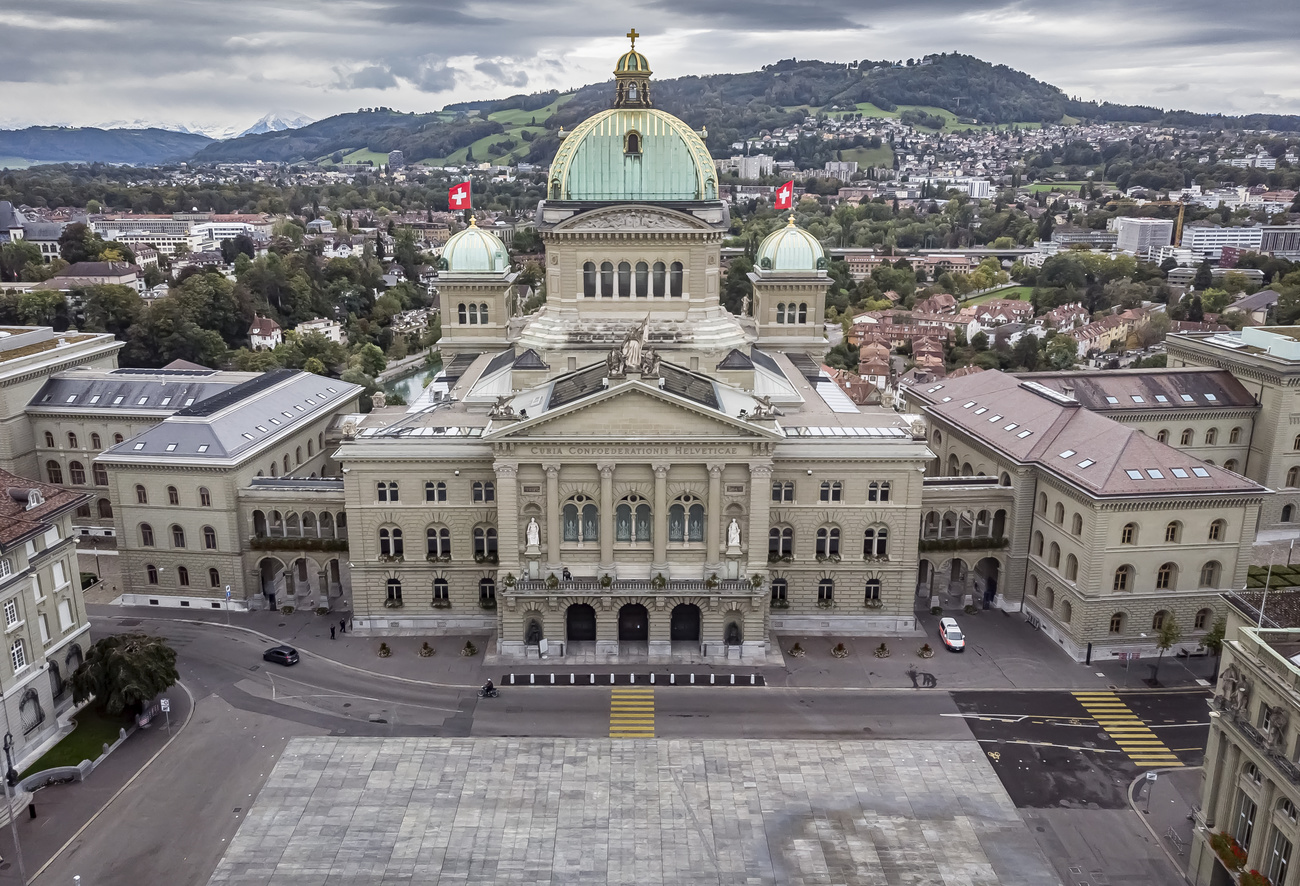
Swiss government decides to draw up negotiating mandate with EU

The Swiss government wants to draw up a negotiating mandate with the European Union. In its view, the exploratory talks with Brussels have been concluded.
The national government intends to decide whether to accept the mandate before the end of the year, according to a statement on the decision on Wednesday. It has instructed the foreign ministry to prepare concrete negotiations.
According to the government, the results of the exploratory talks with the EU will allow the draft to be finalised. The European Commission was informed of this decision on Wednesday, according to the press release.
+ Swiss-EU relations: Bern prepares for a vacuum
Swiss diplomats have been holding preliminary talks in Brussels since April 2022. The aim of the exploratory talks was to assess where Switzerland and the EU could reach an agreement. A negotiating mandate is now required to continue.
The exploratory talks included new agreements on electricity, health and food safety, as well as Switzerland’s readmission to the EU research and education programmes Horizon Europe and Erasmus+.
It also includes so-called institutional issues such as the regulation of dispute resolution and the dynamic adoption of law. The most recent round of exploratory talks with the EU took place on October 27.
+ What is the EU framework deal?
Talks with the cantons
In parallel to the exploratory talks with the EU, the government has also held talks with the cantons, social partners and business circles in recent months, it writes. The main topics of these talks were the free movement of people, wage protection for posted workers and state aid.
According to the government, the majority of the issues were clarified satisfactorily. For example, public services were not affected by the negotiations. However, some issues still need to be addressed in greater depth, according to the press release.
+ How will Switzerland and the EU solve their differences?
According to the government, parliament, the cantons, the social partners, the business community and other important stakeholders will be closely involved in the next steps of the process.
The trade unions spoke out against the initial results of the exploratory talks on Monday. They criticised the threat of a reduction in wage protection and public services.
Key parameters already adopted
Back in June the government announced it had adopted the key parameters for a negotiating mandate with the EU. It intends to prepare for the adoption of a negotiating mandate by the end of this year.
At the time, it was stated that the benchmarks formed the guidelines for possible future negotiations and served as the basis for the preparation of a negotiating mandate.
This news story has been written and carefully fact-checked by an external editorial team. At SWI swissinfo.ch we select the most relevant news for an international audience and use automatic translation tools such as DeepL to translate it into English. Providing you with automatically translated news gives us the time to write more in-depth articles. You can find them here.
If you want to know more about how we work, have a look here, and if you have feedback on this news story please write to english@swissinfo.ch.

In compliance with the JTI standards
More: SWI swissinfo.ch certified by the Journalism Trust Initiative


















![The four-metre-long painting "Sonntag der Bergbauern" [Sunday of the Mountain Farmers, 1923-24/26] had to be removed by a crane from the German Chancellery in Berlin for the exhibition in Bern.](https://www.swissinfo.ch/content/wp-content/uploads/sites/13/2025/12/01_Pressebild_KirchnerxKirchner.jpg?ver=1ea8acae)










You can find an overview of ongoing debates with our journalists here . Please join us!
If you want to start a conversation about a topic raised in this article or want to report factual errors, email us at english@swissinfo.ch.